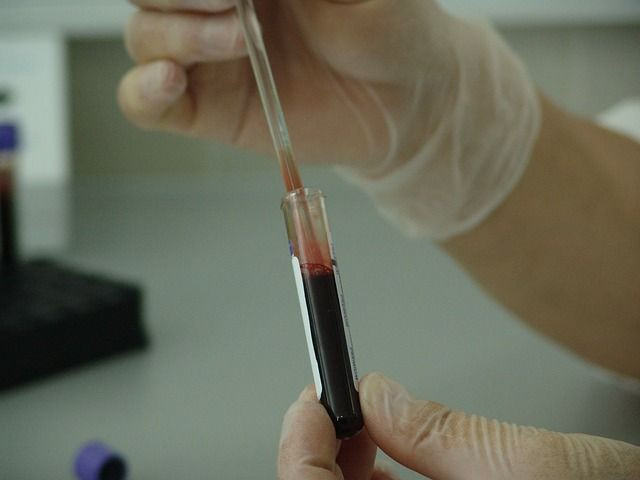Prostate Cancer: New Blood Test Measuring Sex Hormones Could Predict Severity Of The Disease

A prostate cancer diagnosis can be devastating, even when there are effective treatment options — 95 percent of men will survive more than 15 years after diagnosis. However, survival rates depend on a number of factors, including the aggressiveness of the cancer. And now, according to new research presented at the European Association of Urology 2016 in Munich, a simple blood test might be capable of doing just that.
Currently, doctors evaluate a cancer patient's prognosis with the Gleason pattern — a numerical system designed to grade the tissue sampled from a biopsy. It's an invasive procedure, but it helps doctors determine how present and/or aggressive the tumor cells are. A high Gleason score (on a scale of one to five) indicates that the tissue has largely been taken over by tumor cells, and it is associated with poor survival outcomes. However, Italian researchers believe this can be determined with a less invasive blood test.
Dr. Marco Moschini, who led the study, said a blood test that reveals low levels of testosterone, also known as the condition hypogonadism, can predict a patient's Gleason score. "This association will allow us to predict what the outcome will be before we decide to treat a patient with surgery. Potentially this can be helpful to identify patients with the most aggressive prostate cancer before surgery," he said.
Moschini and his team collected and analyzed data from more than 1,000 patients who underwent radical prostatectomy surgery — an operation to remove the prostate gland and some tissue around it — at the San Raffaele hospital in Milan. Researchers found that measuring for hypogonadism status and levels of sex-hormone-binding globulin helped them accurately identify the 118 patients that showed Gleason pattern 5, which is the highest and worse Gleason score.
The American Cancer Society reports prostate cancer is one of the most common cancers among men in the U.S., where one in seven men will be diagnosed with the disease in their lifetime. Although these findings are promising, researchers say more research is needed on the role hormones play in prostate cancer development as they are unsure if this is an association, or if having low levels of testosterone increases the risk of developing an aggressive prostate cancer.
"If this is the case, then it may be that treating the hypogonadism can lessen this risk, but we need more work before we can be sure of that," Moschini said.
However, researchers wrote that their results could explain why patients with hypogonadism have an increased risk of worse cancer outcomes after they’ve been undergone surgery.
Source: European Association of Urology. 2016.



























